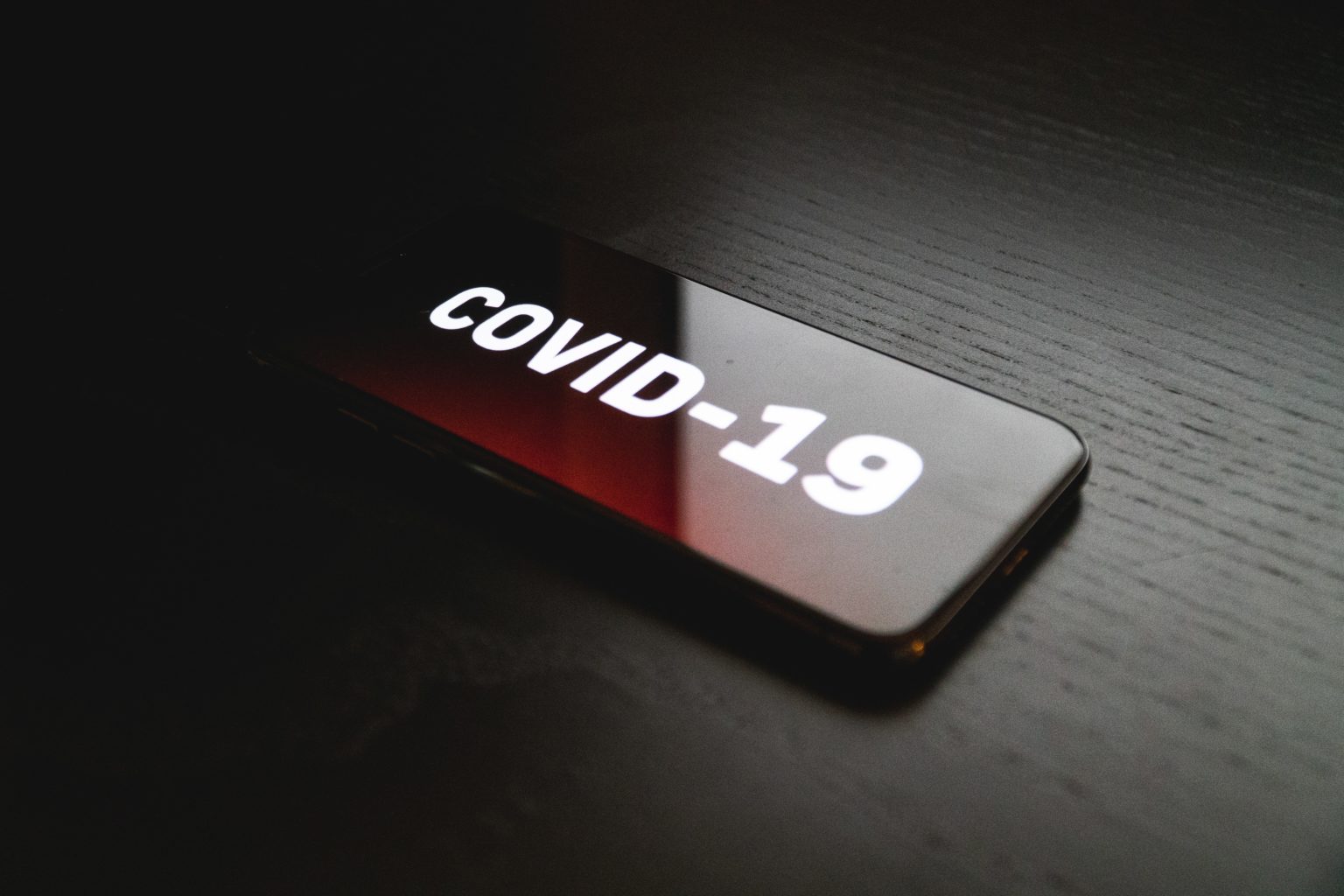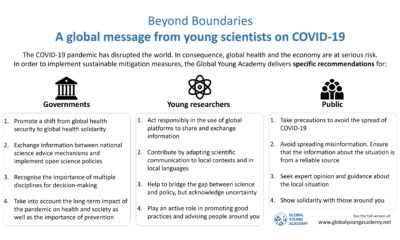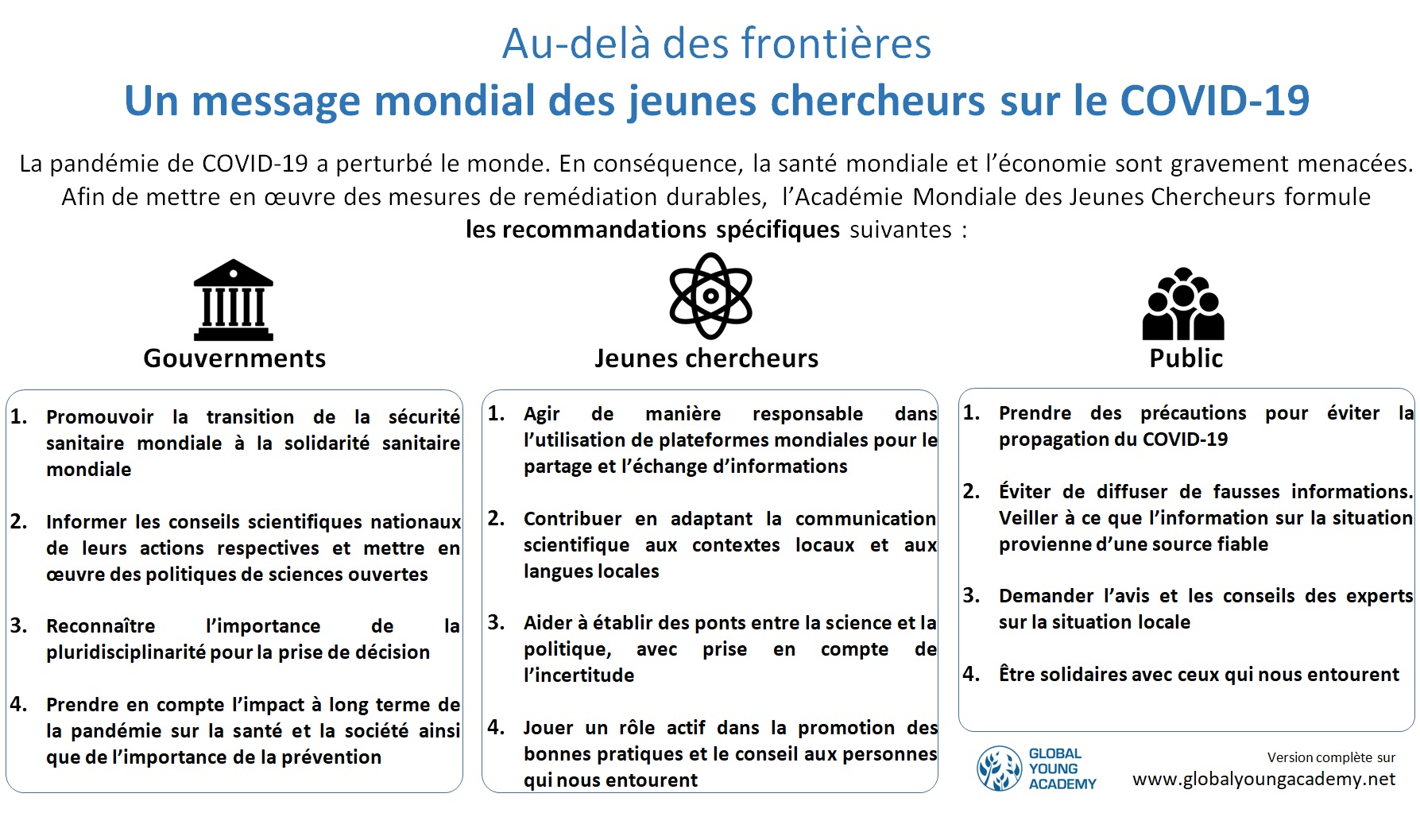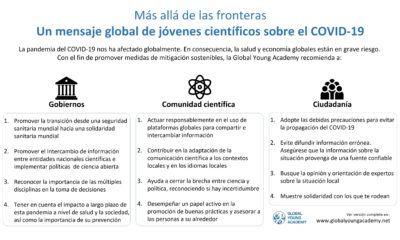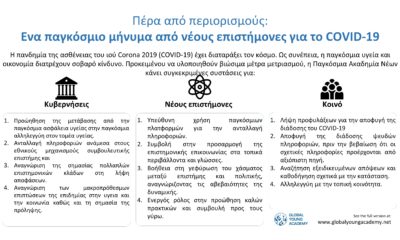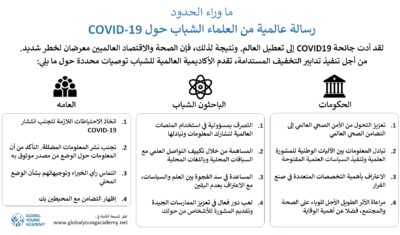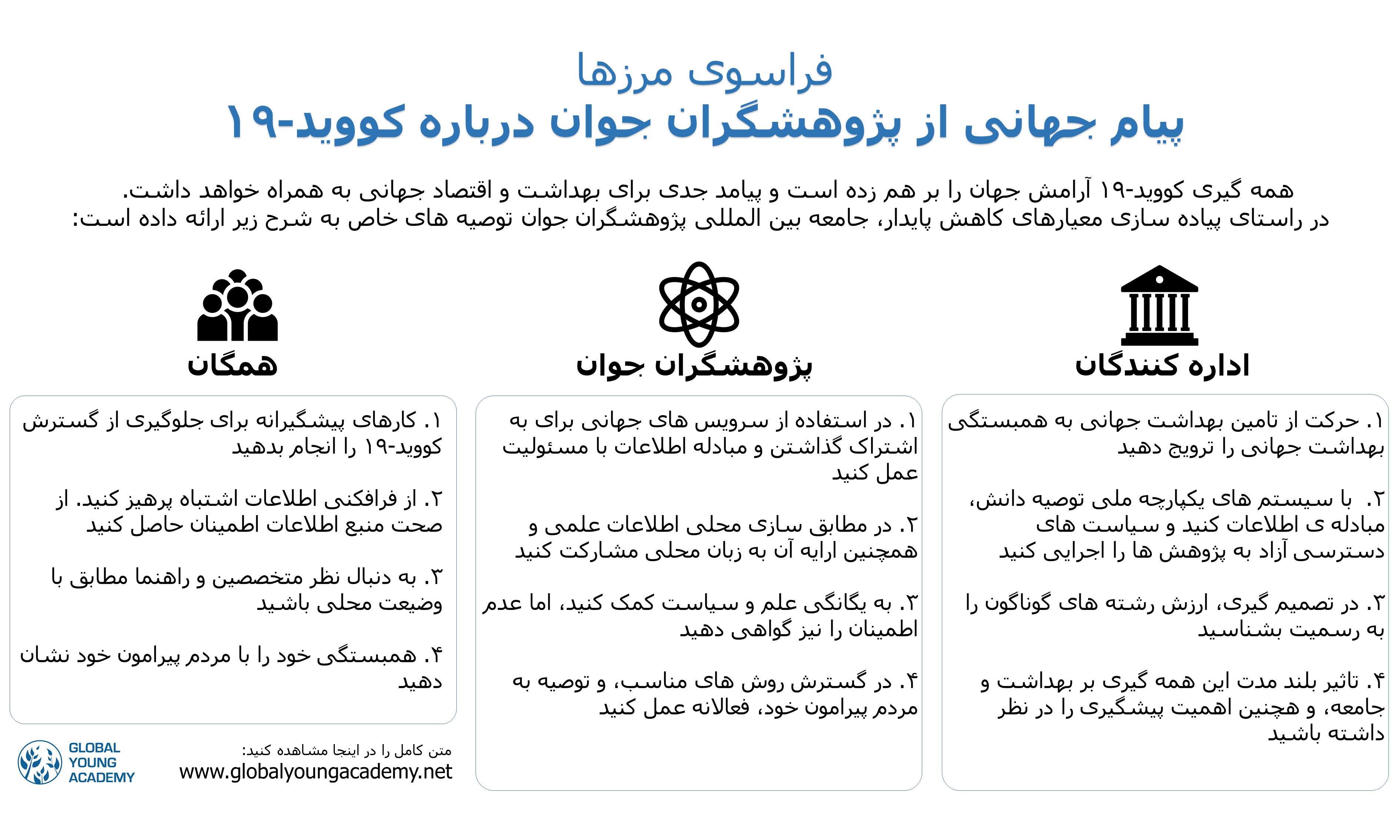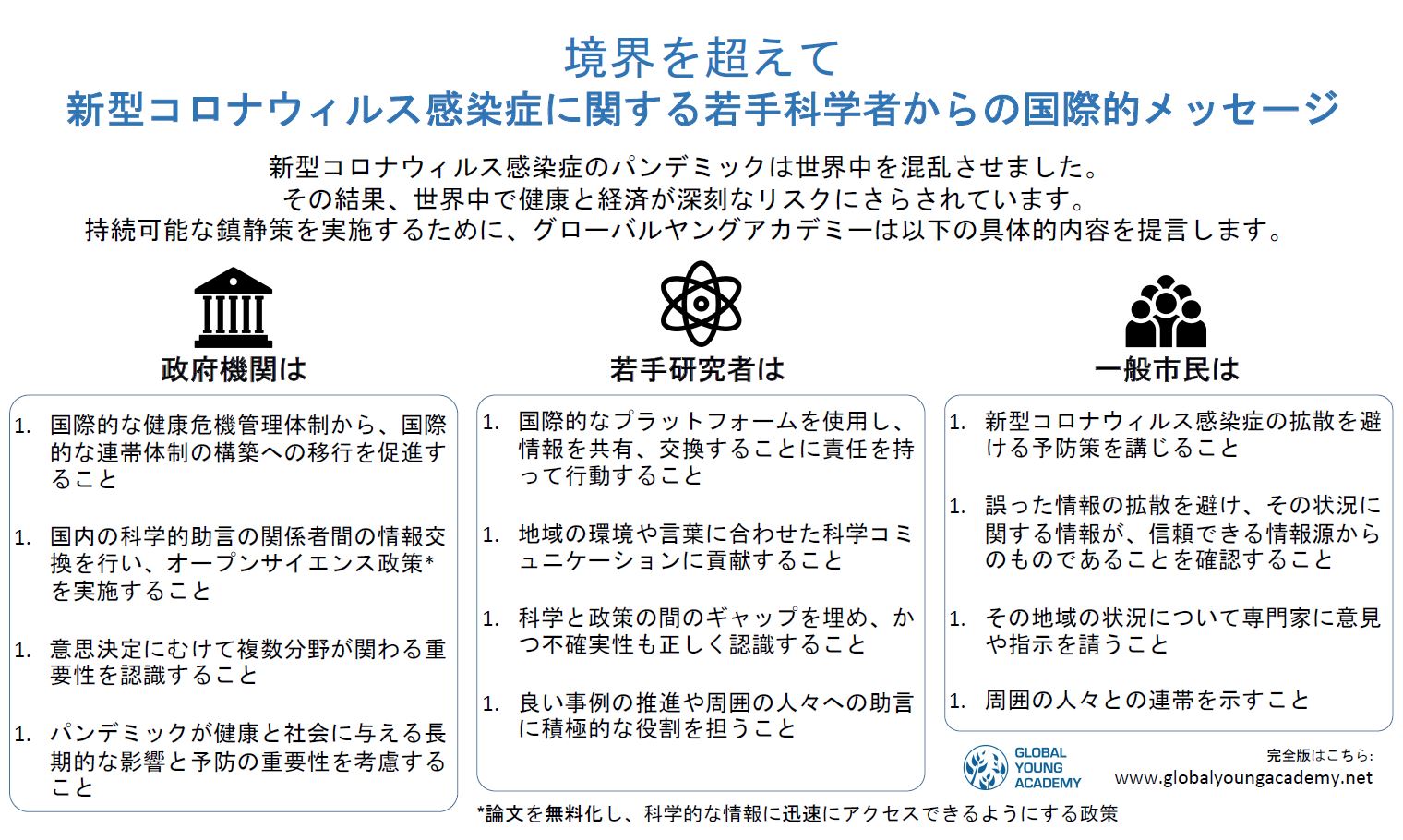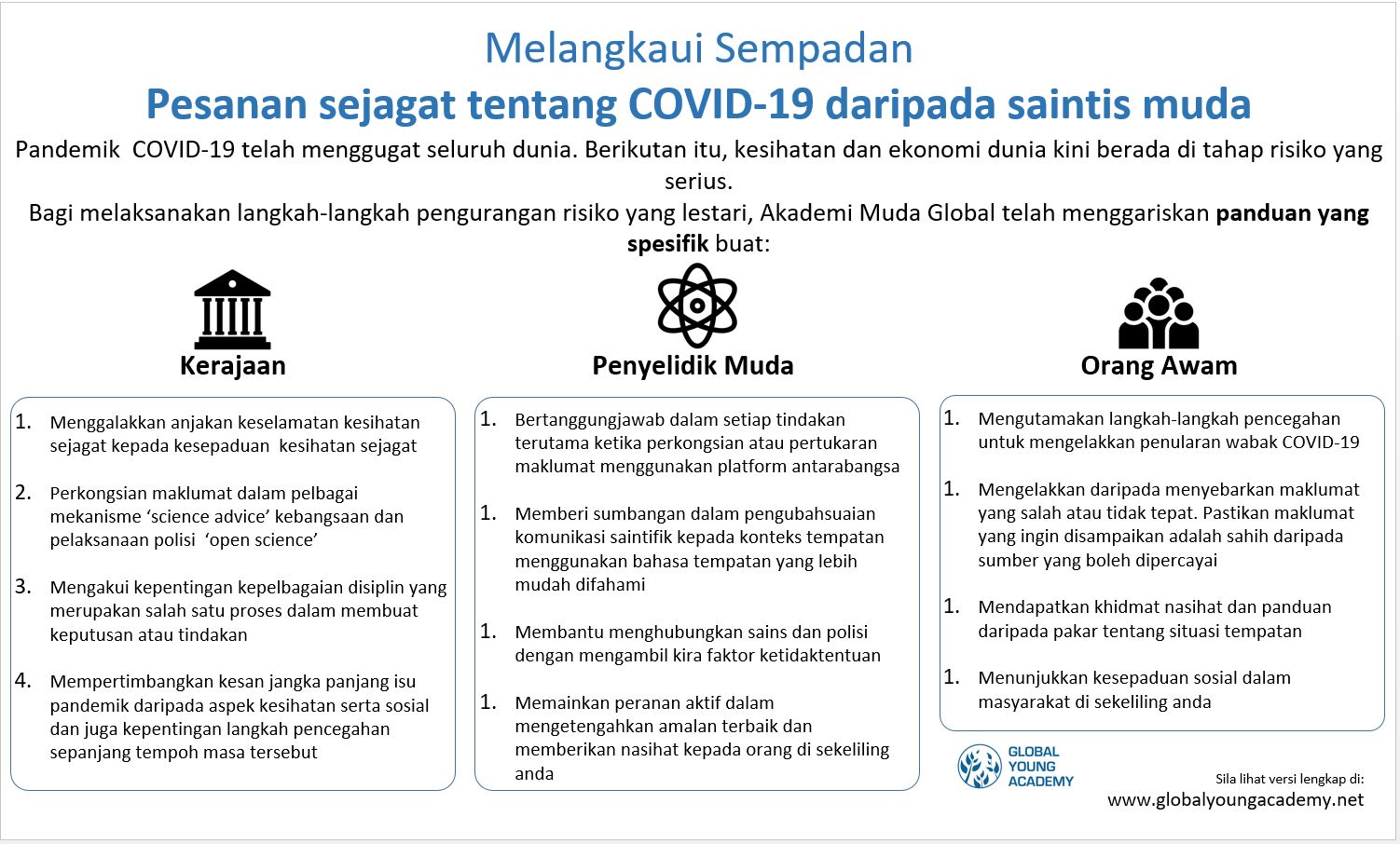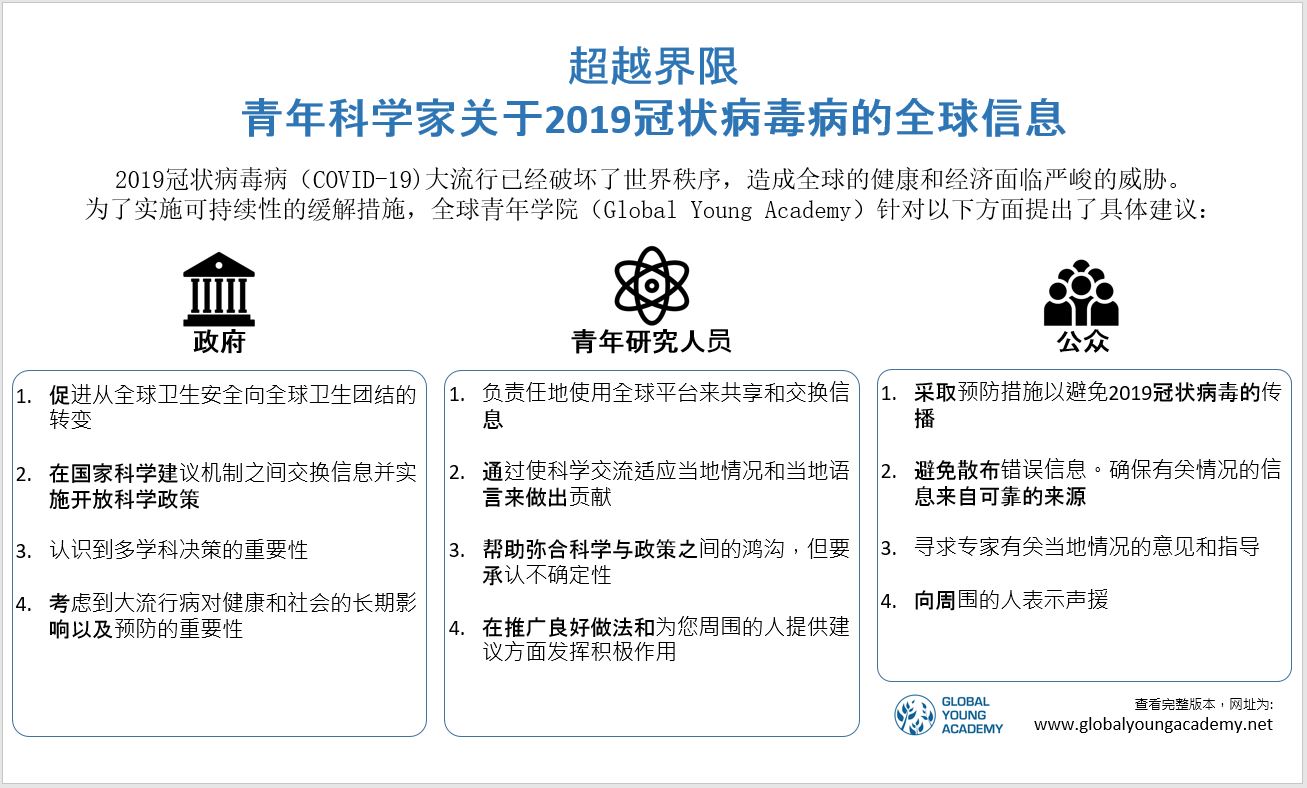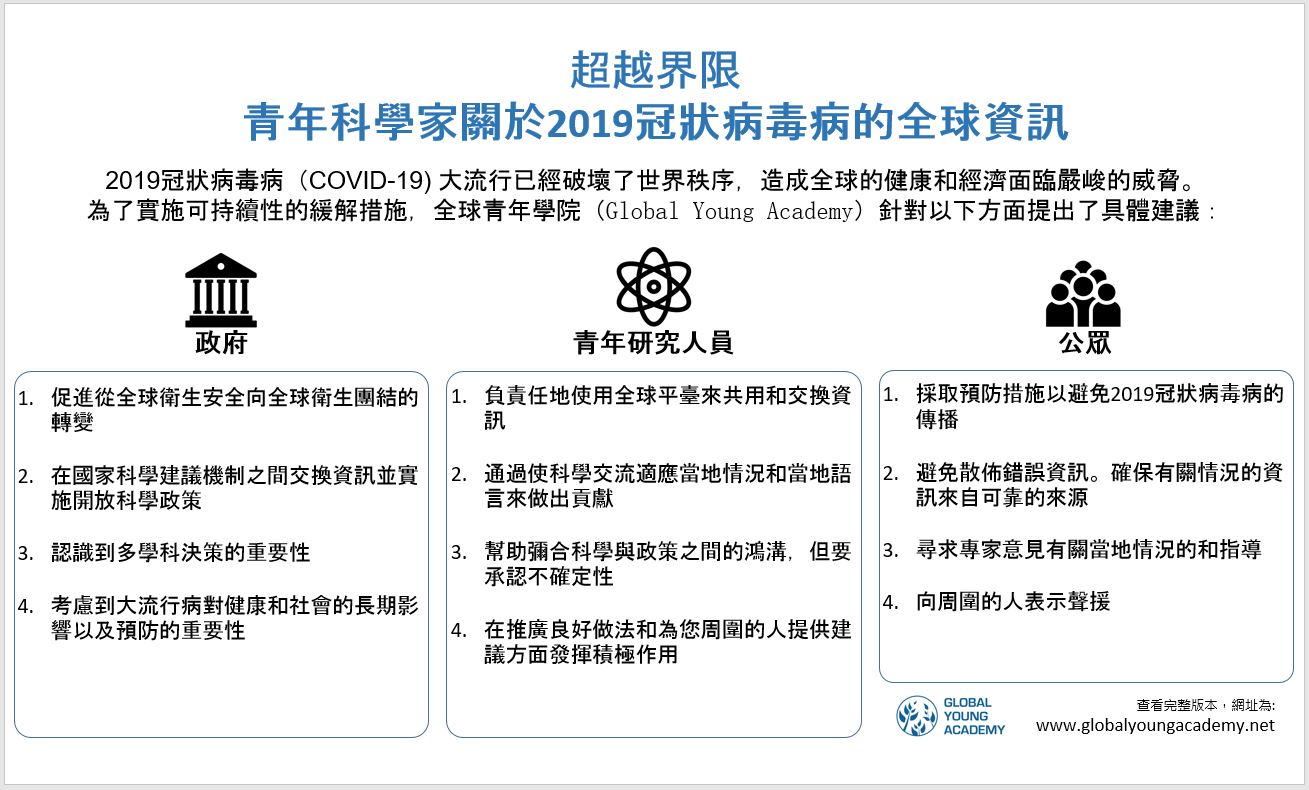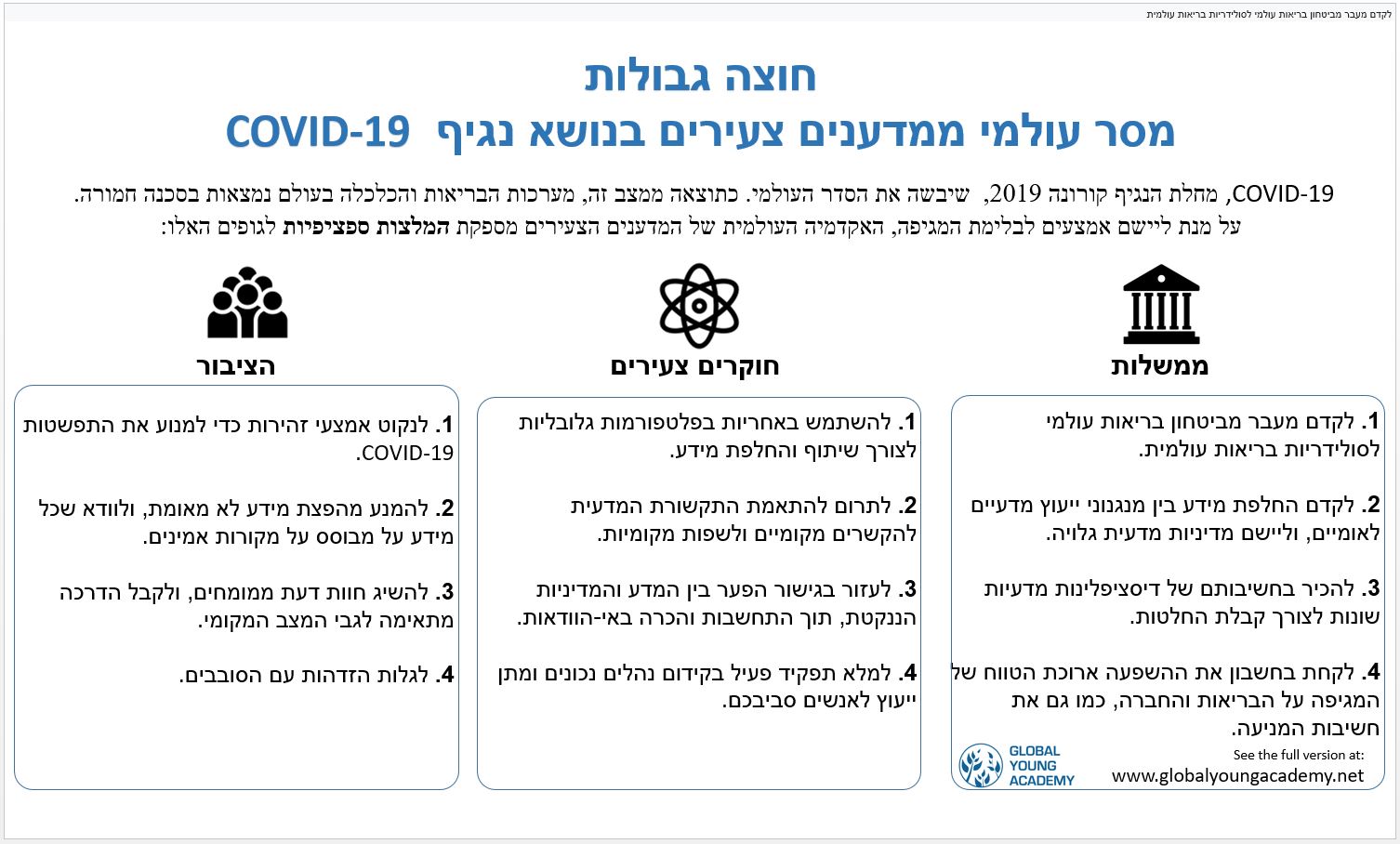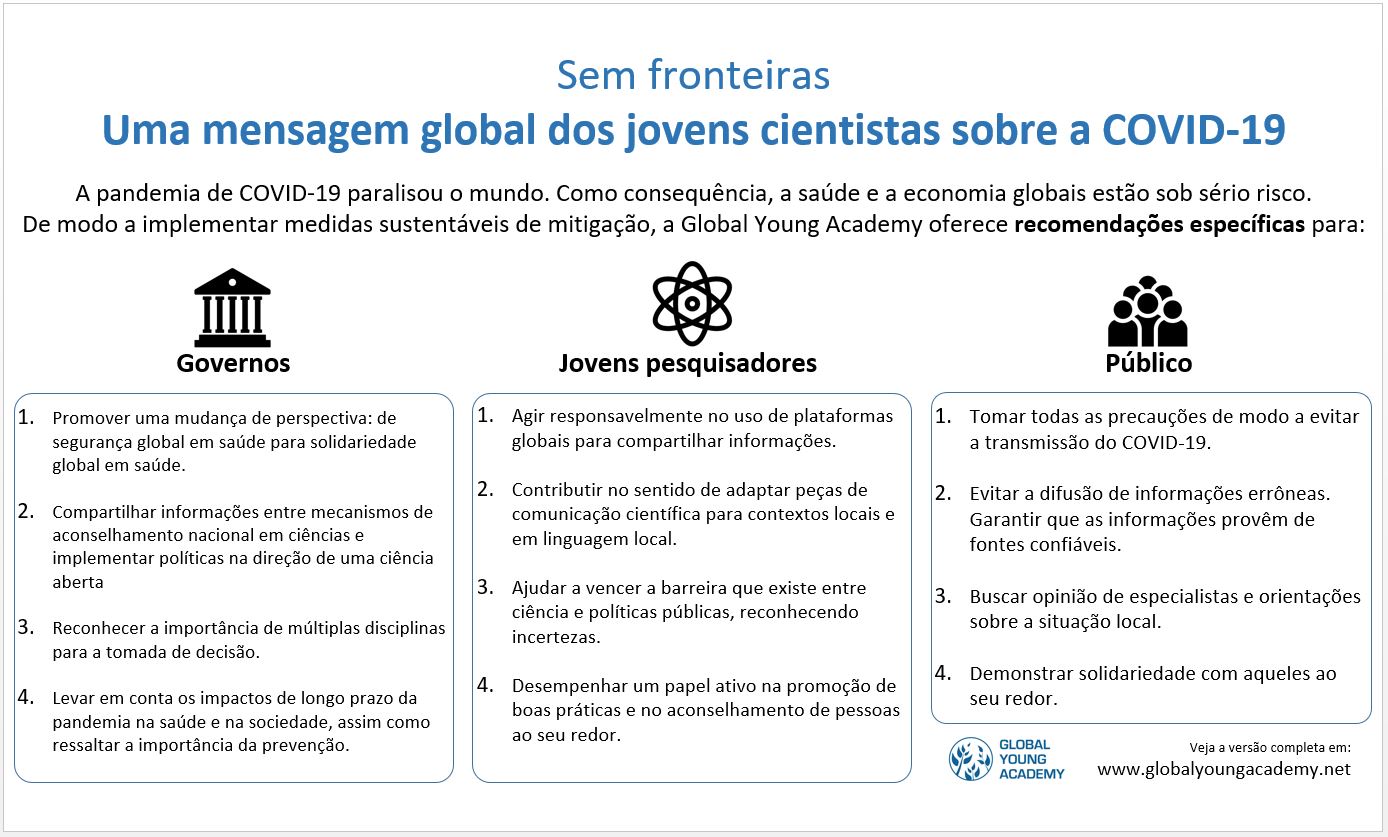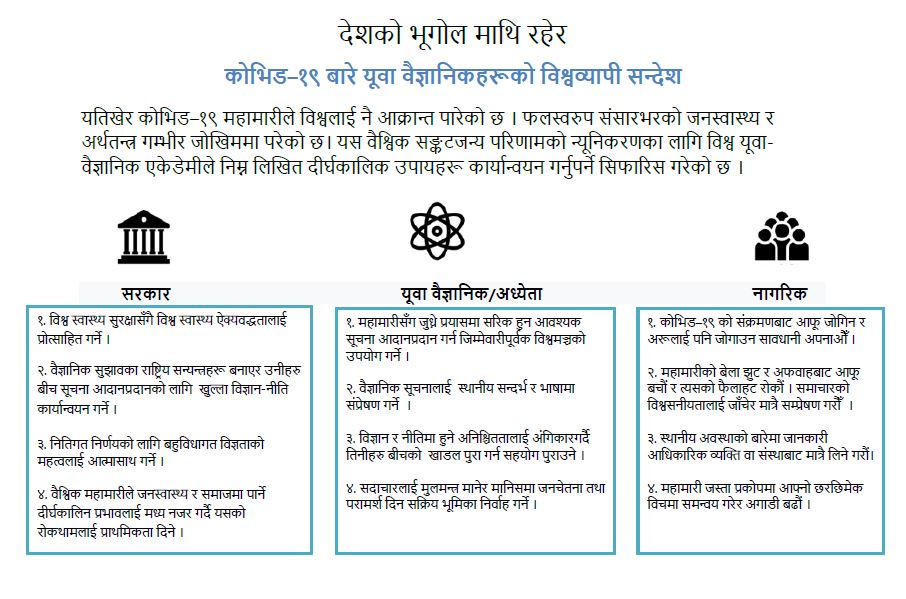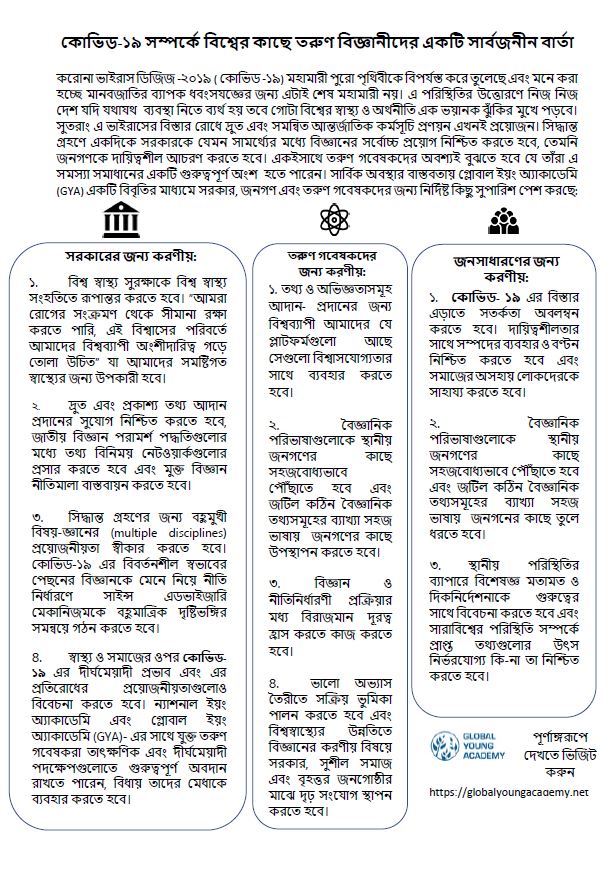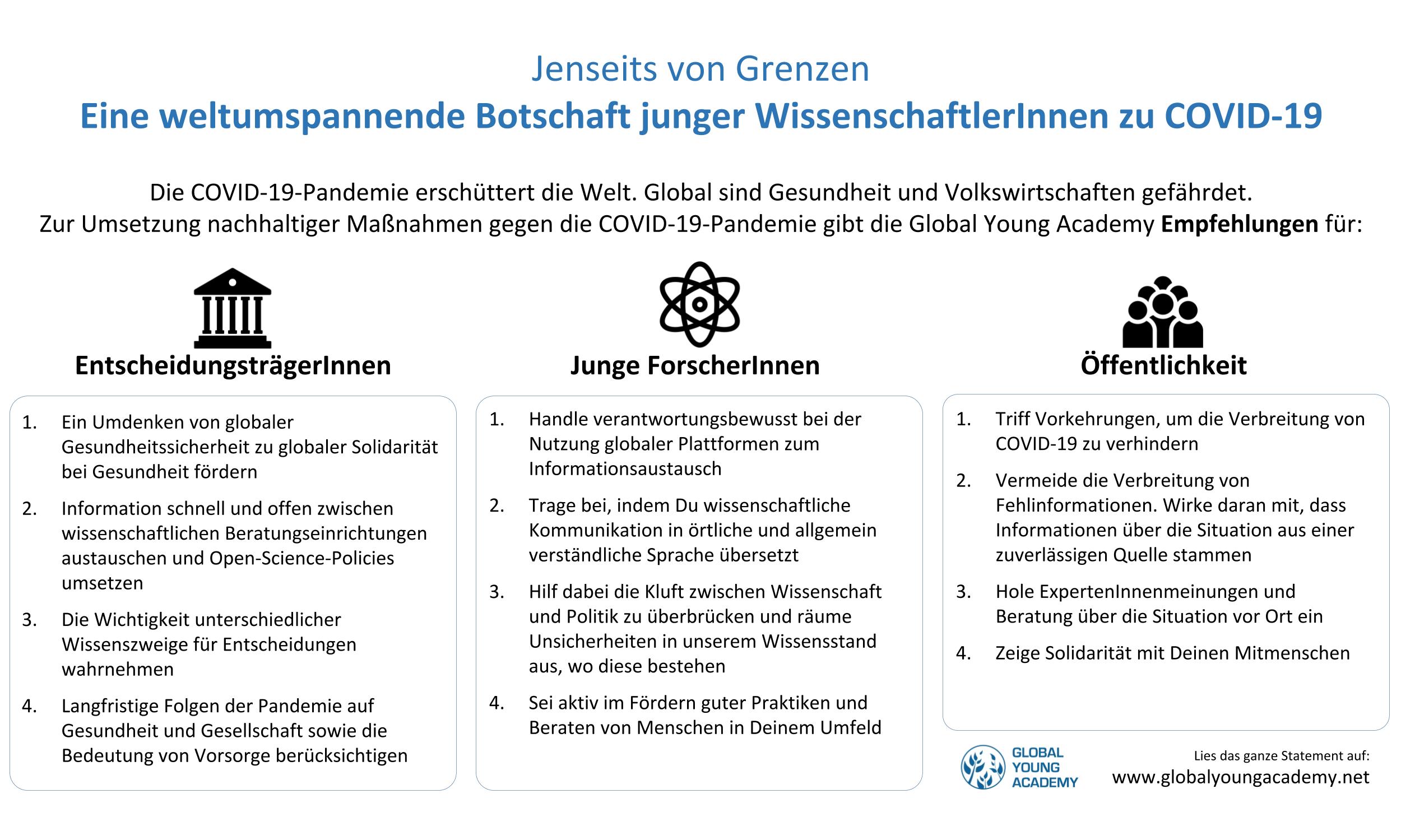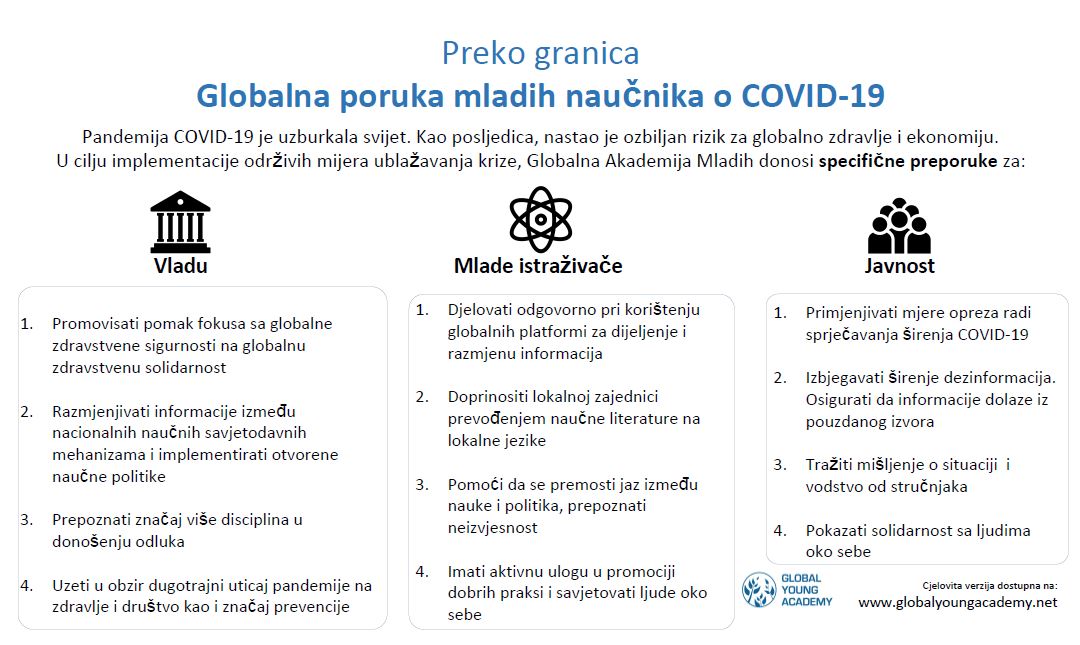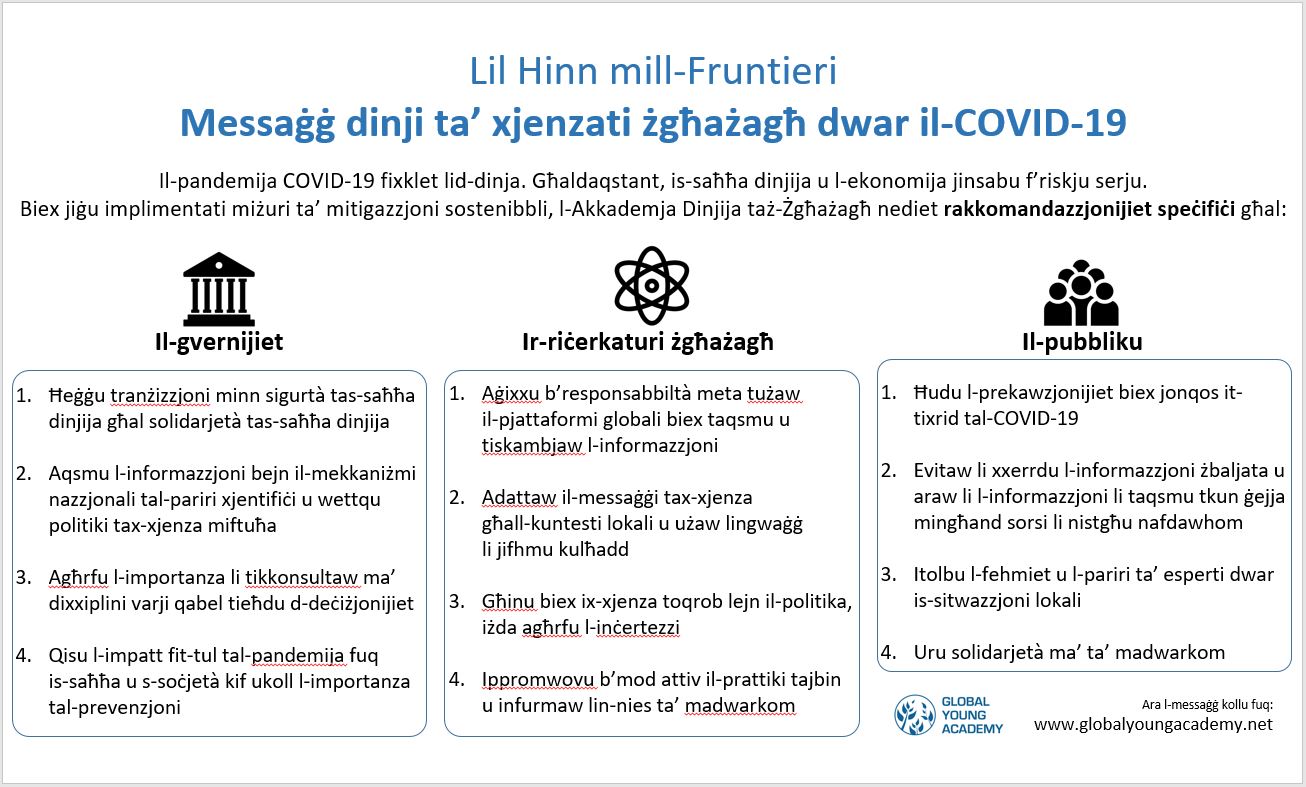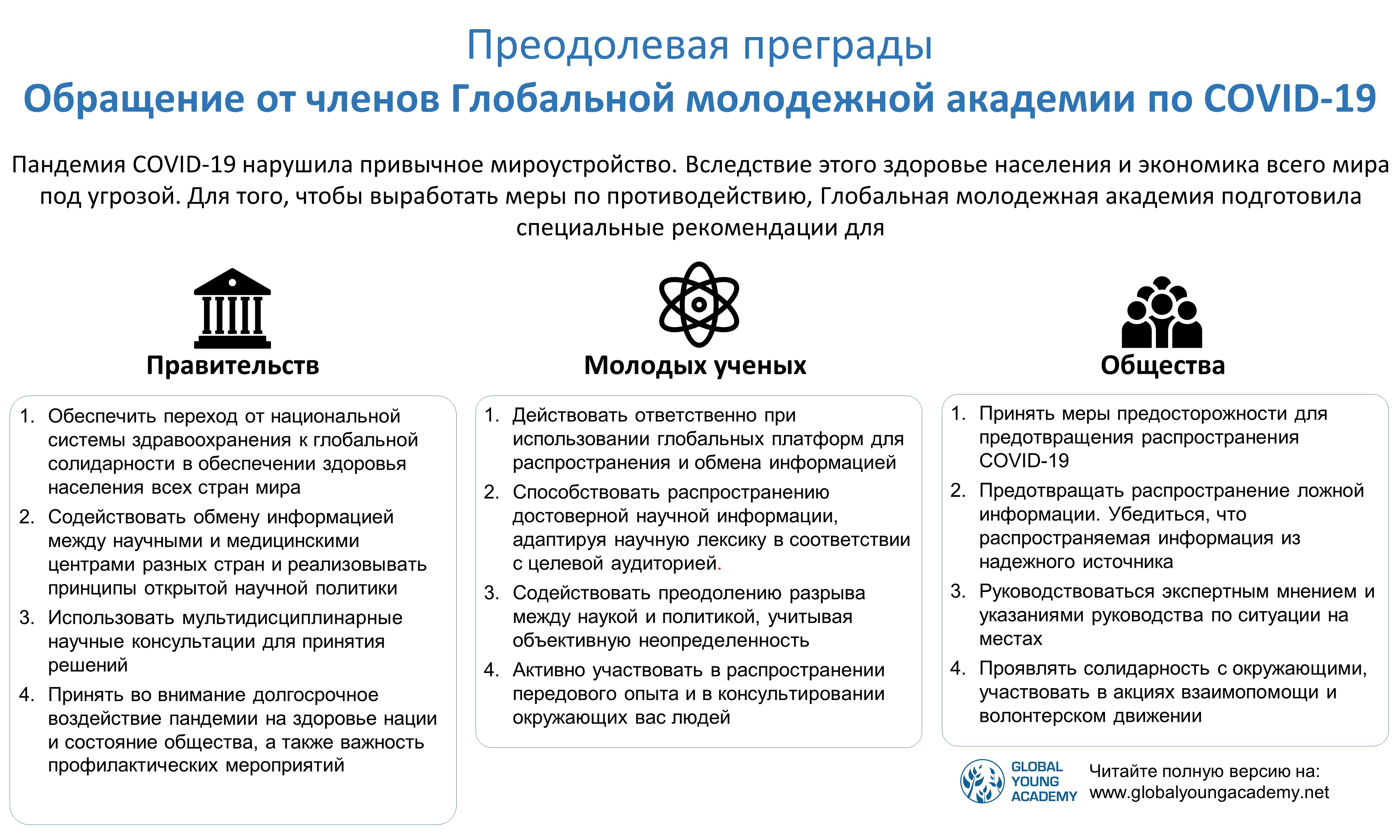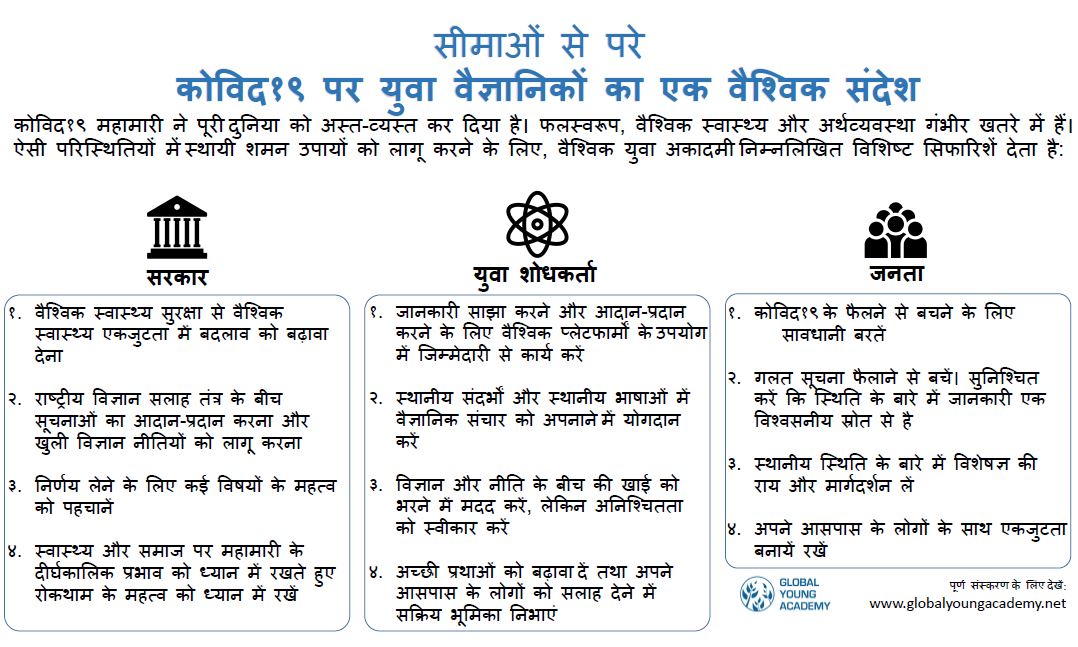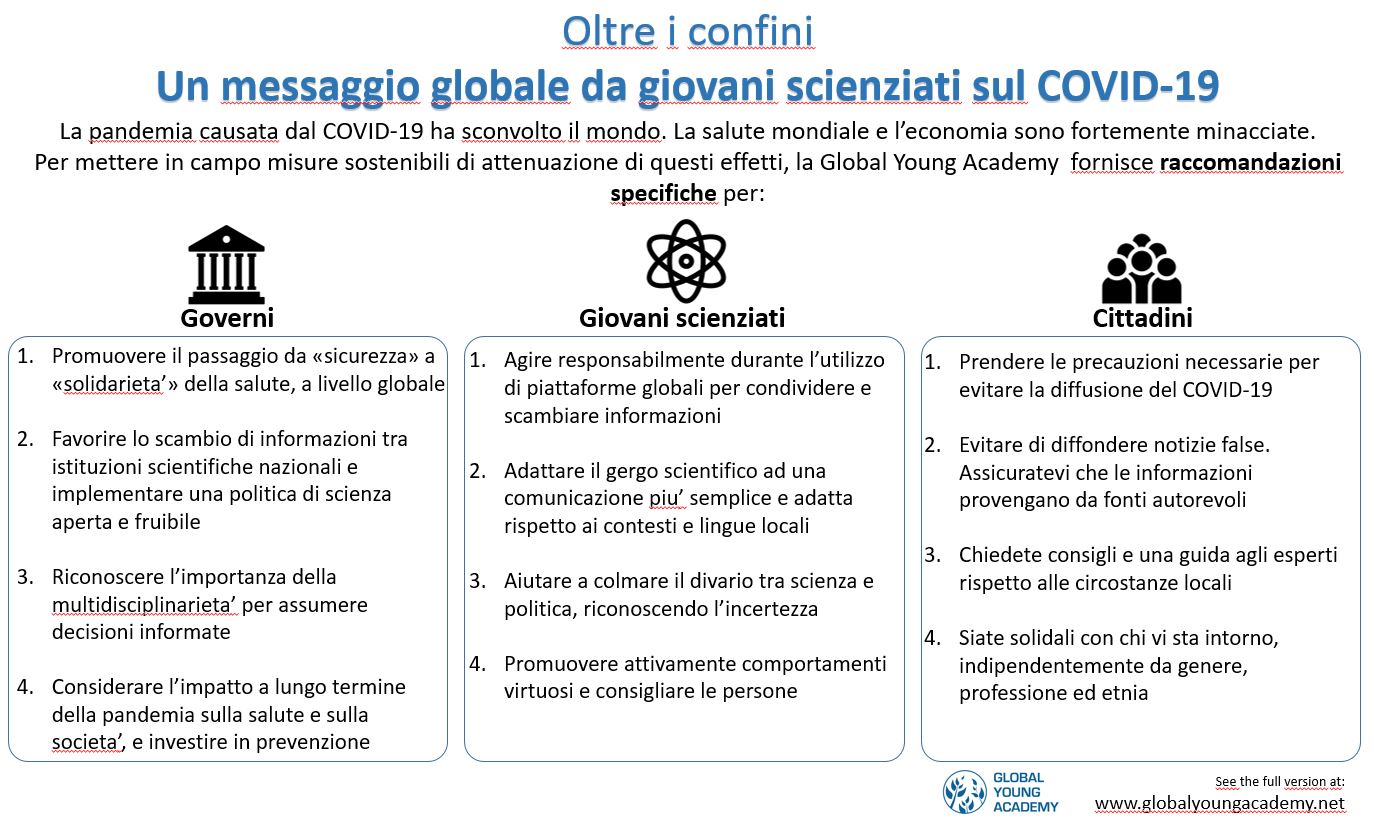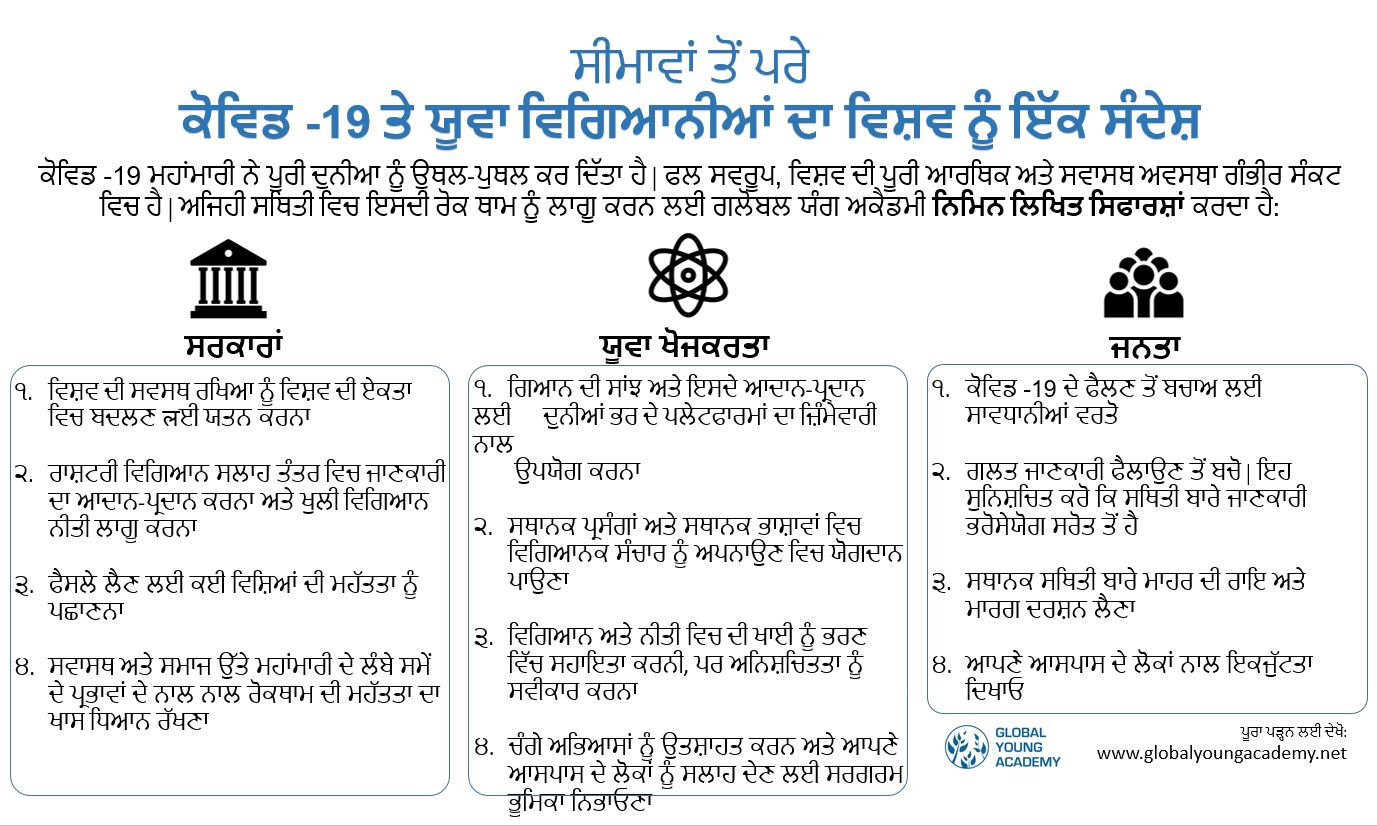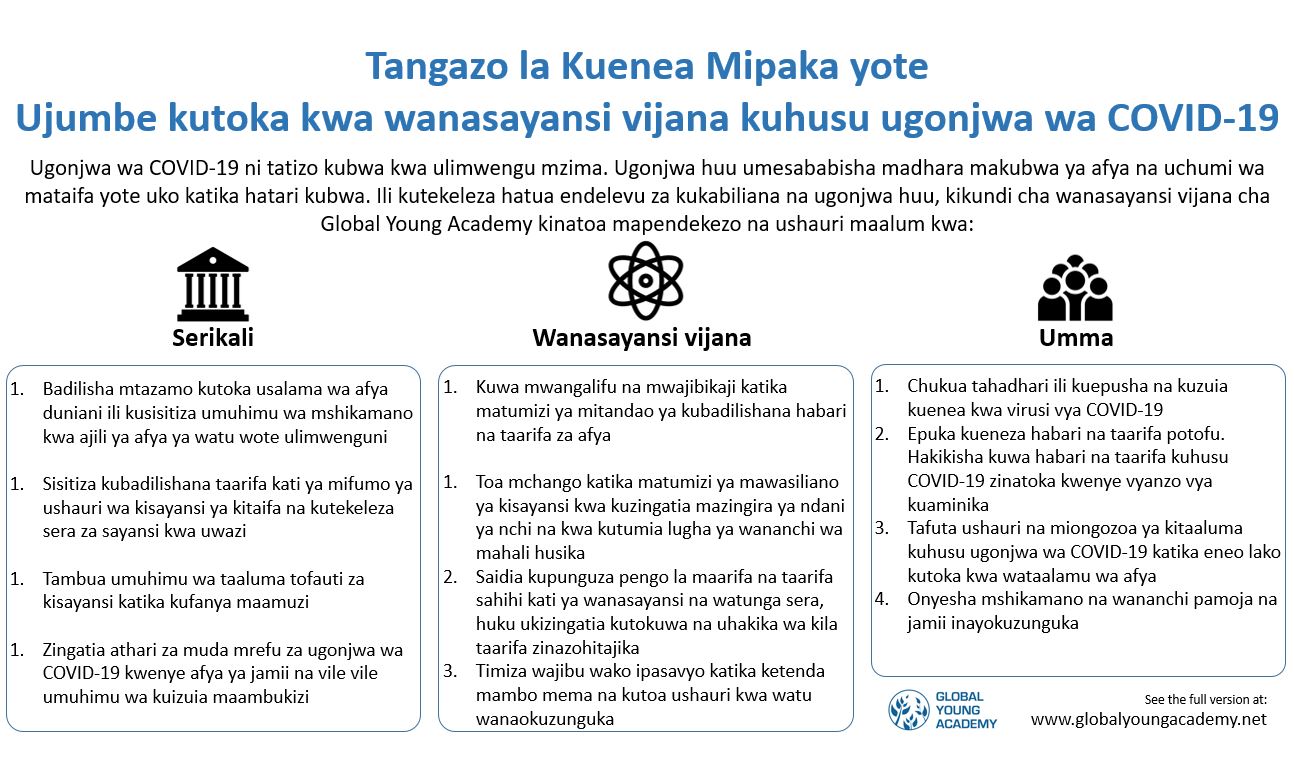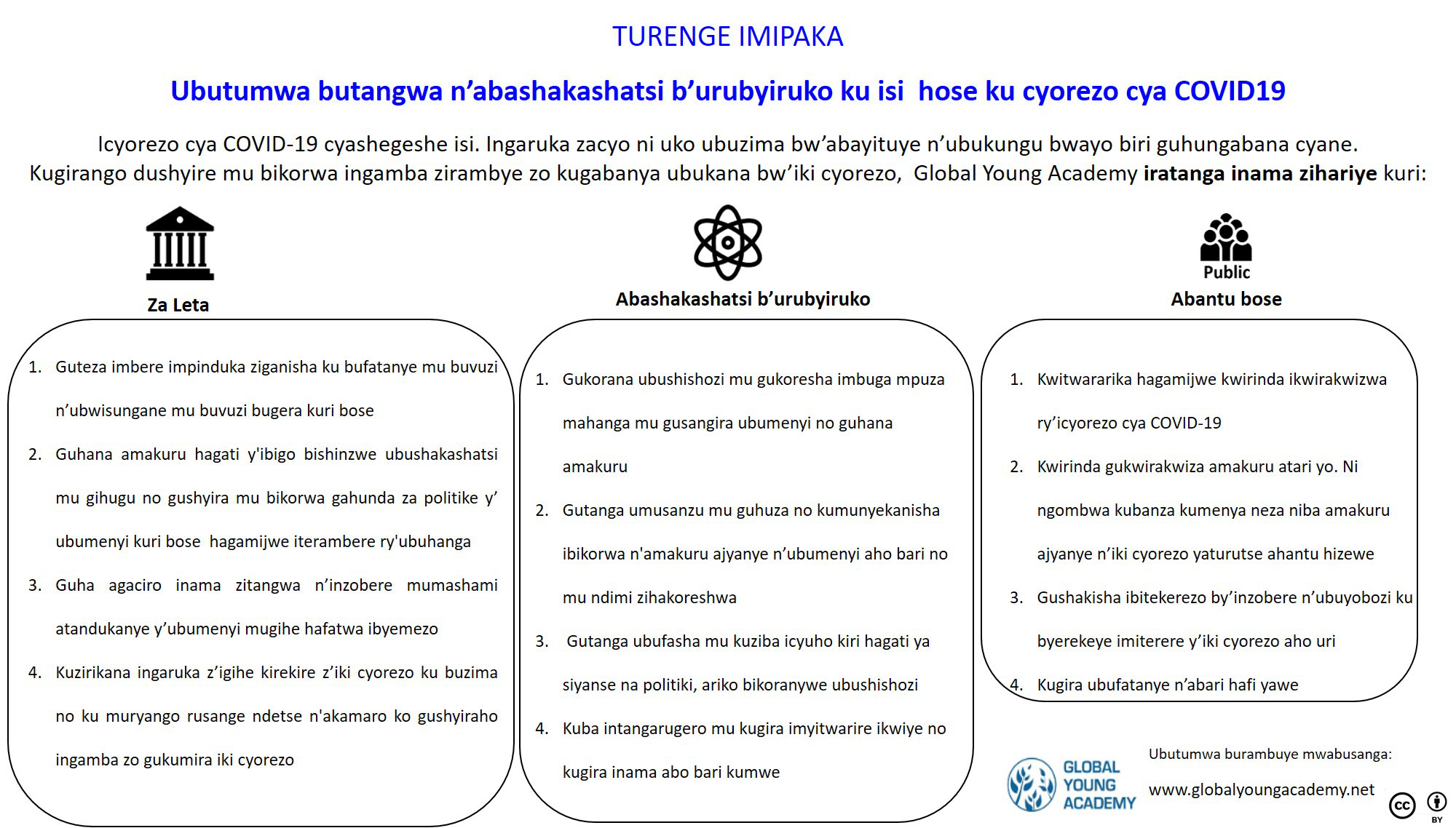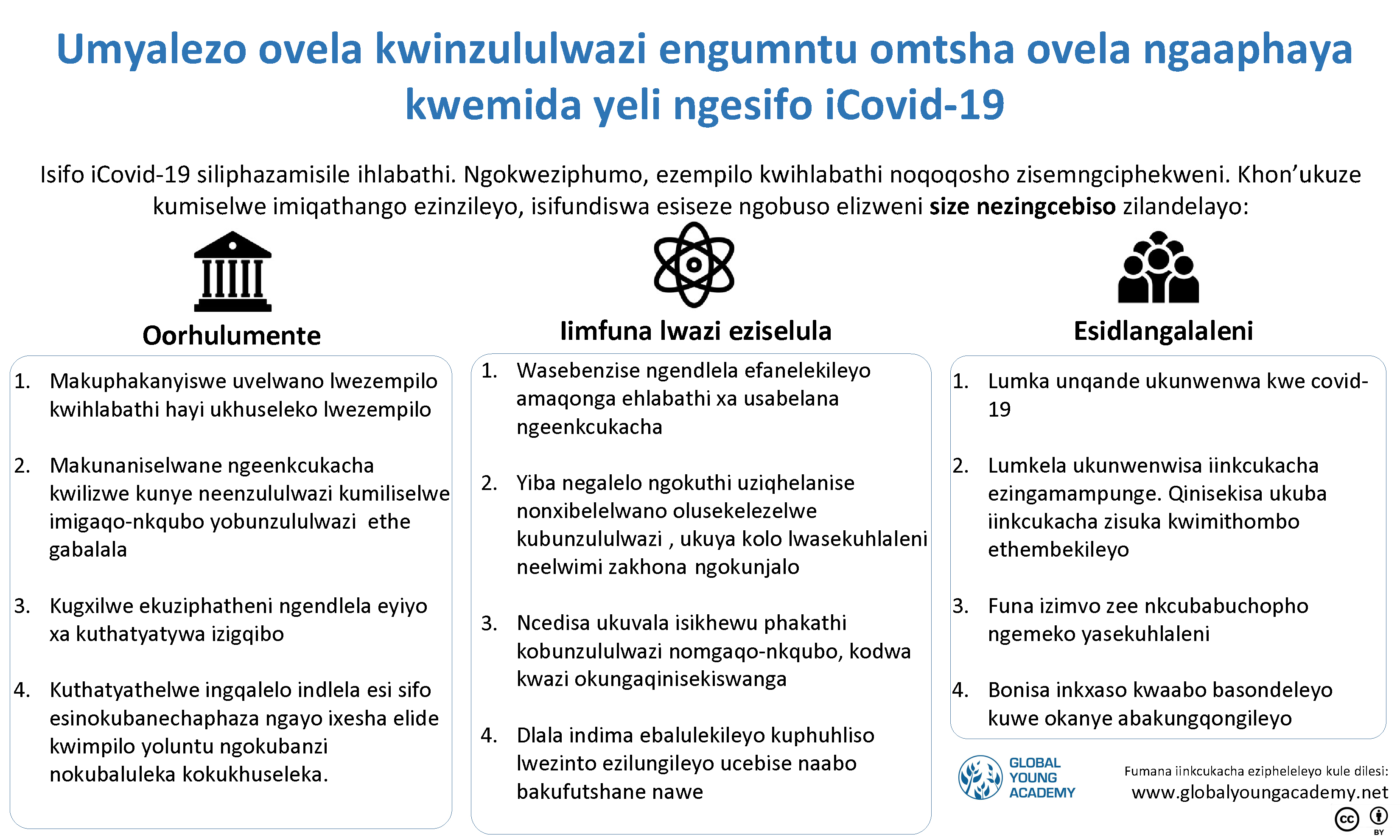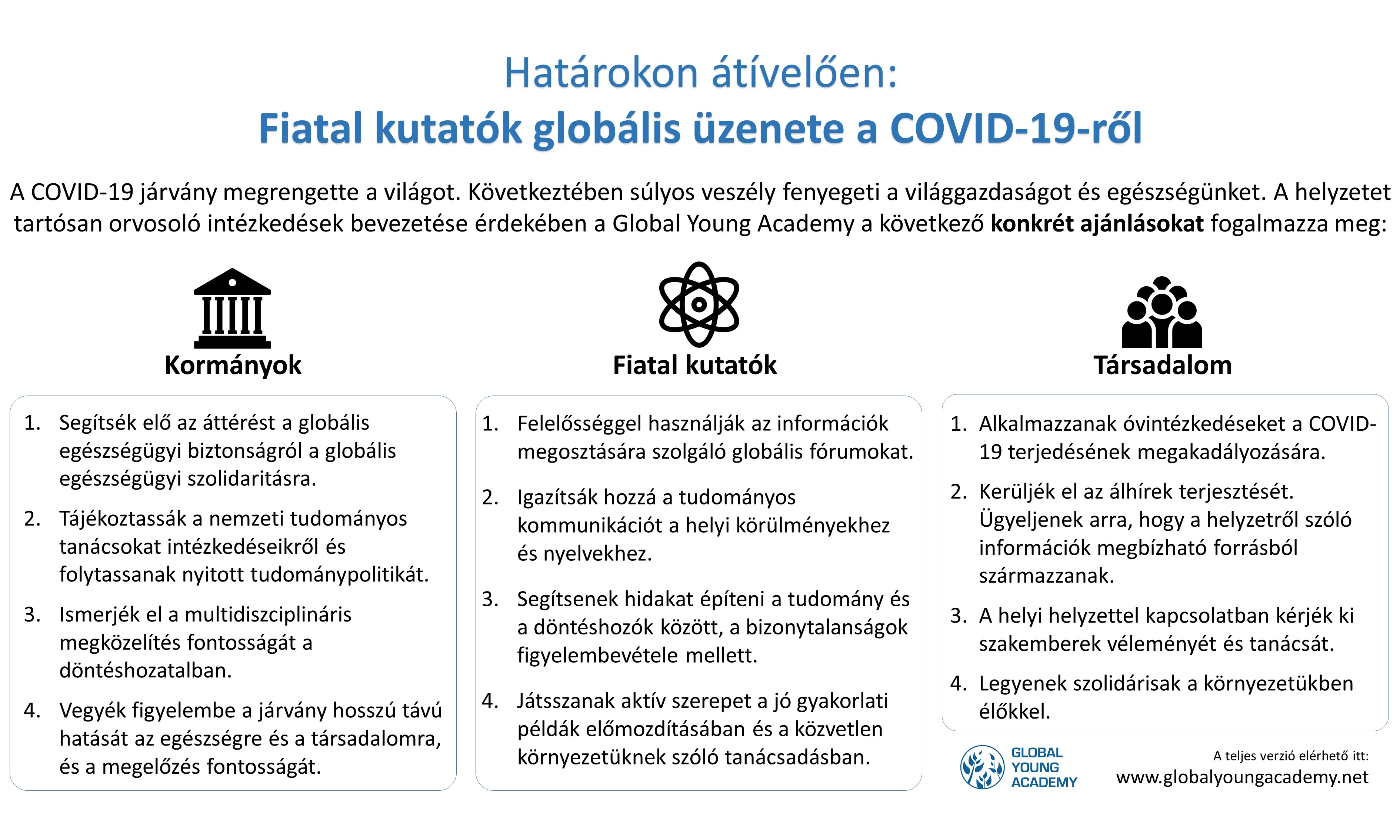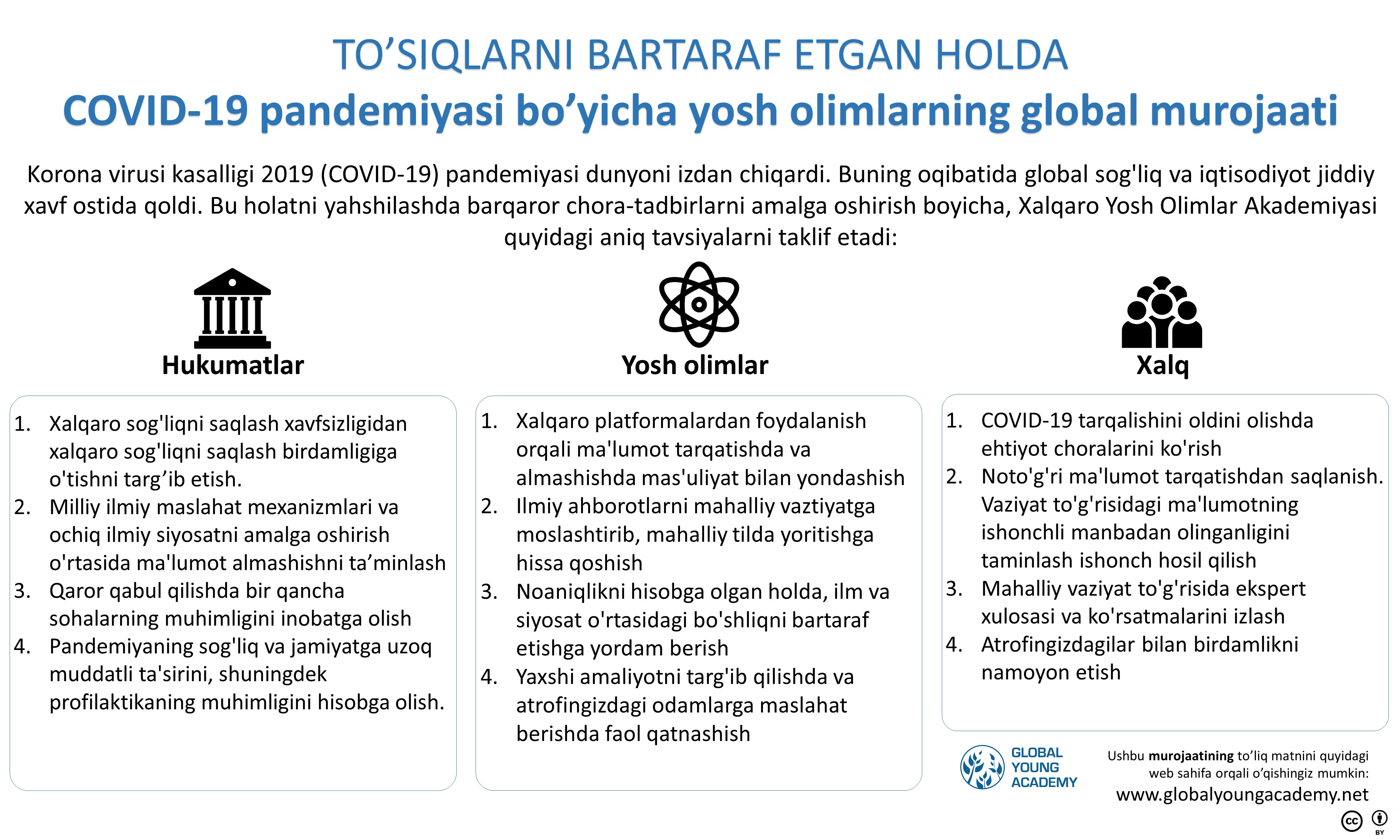Note: The full version of this Statement is available here.
All infographics are available here.
The Corona Virus Disease 2019 (COVID-19) pandemic has disrupted the world and it will not be the last pandemic to wreak havoc on humanity. Global health and the economy are at serious risk if proper mitigation measures are not taken in each country. To mitigate transmission of the virus, we need rapid, synchronised international action. Governments must consider the best science available to make informed decisions, the public must act as responsibly, and young researchers must recognise that they can be a crucial part of the solution. This Global Young Academy (GYA) Statement delivers specific recommendations for governments, the public, and young researchers.
Governments should:
- Promote a shift from global health security to global health solidarity. Although we need to temporarily close borders to contain the spread of COVID-19, in the long term we need to change the current framing of health security. Instead of believing that we can protect borders from the incursion of disease, we should build global partnerships that benefit our collective health.
- Exchange information quickly and openly, promote information exchange networks between national science advice mechanisms and implement open science policies. More efficient and free exchange of information will let us gain invaluable time in responding to crises, saving many lives.
- Recognise the importance of multiple disciplines for decision-making. Given the evolving nature of the science underpinning pandemics, the science advisory mechanisms supporting policymaking must be composed of diverse perspectives so that a full assessment of the intended and unintended consequences of policy actions can be quickly and thoroughly made.
- Take into account the long-term impact of the pandemic on health and society as well as the importance of prevention. Young researchers, accessed through the National Young Academies and the GYA, can provide important contributions to both immediate and long-term responses.
The public should
- Take precautions to avoid the spread of COVID-19, and play our part in controlling the pandemic by following guidelines, sensibly using and distributing resources, and supporting vulnerable members of society.
- Avoid spreading misinformation. Encourage responsible use of social media. Learn to distinguish fear-based from fact-based information to avoid rumors or “fake news”, and highlight when we are uncertain about the veracity of the information (or we should simply not share anything that cannot be verified).
- Seek expert opinion and guidance about our local situation, and ensure that the information we accept about the situation around the world is from a reliable source.
Young researchers should
- Act responsibly in our use of global platforms to share and exchange information and experiences, and present the credentials for statements we make.
- Contribute by translating science communication to local languages and “lay person” terminology, and adapting the message to local contexts. Play an active role in interpreting complex scientific information to the general public in non-technical language.
- Help to bridge the gap between science and policy. Take the initiative to approach the government if we have relevant knowledge, whether this is directly regarding the pandemic or in fields relating to human reactions and behaviour.
- Play an active role in promoting good practices and advising the people around them. Establish strong connections across various stakeholders, such as the government, civil society and the wider public regarding the role of science in improving our global health.
Together, we can develop stronger science-informed networks for information exchange that will combat the effects of this pandemic and provide long-term collaborative benefits.
Contributors:
- Paulina Carmona-Mora, biochemist, United States
- Victorien Dougnon, microbiologist, Benin
- Sandeep Kaur, chemist, India
- Shabana Khan, geographer, India
- Robert Lepenies, political scientist, Germany
- Boon Han Lim, engineer, Malaysia
- Sandra Lopez-Verges, virologist, Panama
- Felix Moronta, biologist, Italy
- Connie Nshemereirwe, educator, Uganda
- Justine Nzweundji, plant biologist, Cameroon
- Tolullah Oni, physician, United Kingdom
- Wibool Piyawattanametha, biomedical engineer, Thailand
- Anet Režek Jambrak, food engineer and food scientist, Croatia
- Anina Rich, cognitive neuroscientist, Australia
- Michael Saliba, physicist, Germany
- Yoko Shimpuku, nursing scientist, Japan
- Velia Siciliano, medical biotechnologist, Italy
- Udi Sommer, political scientist, Israel
- Fernando Valiente, biochemist, Chile
- Koen Vermeir, historian and philosopher of science, France
- Andre Xuereb, physicist, Malta
